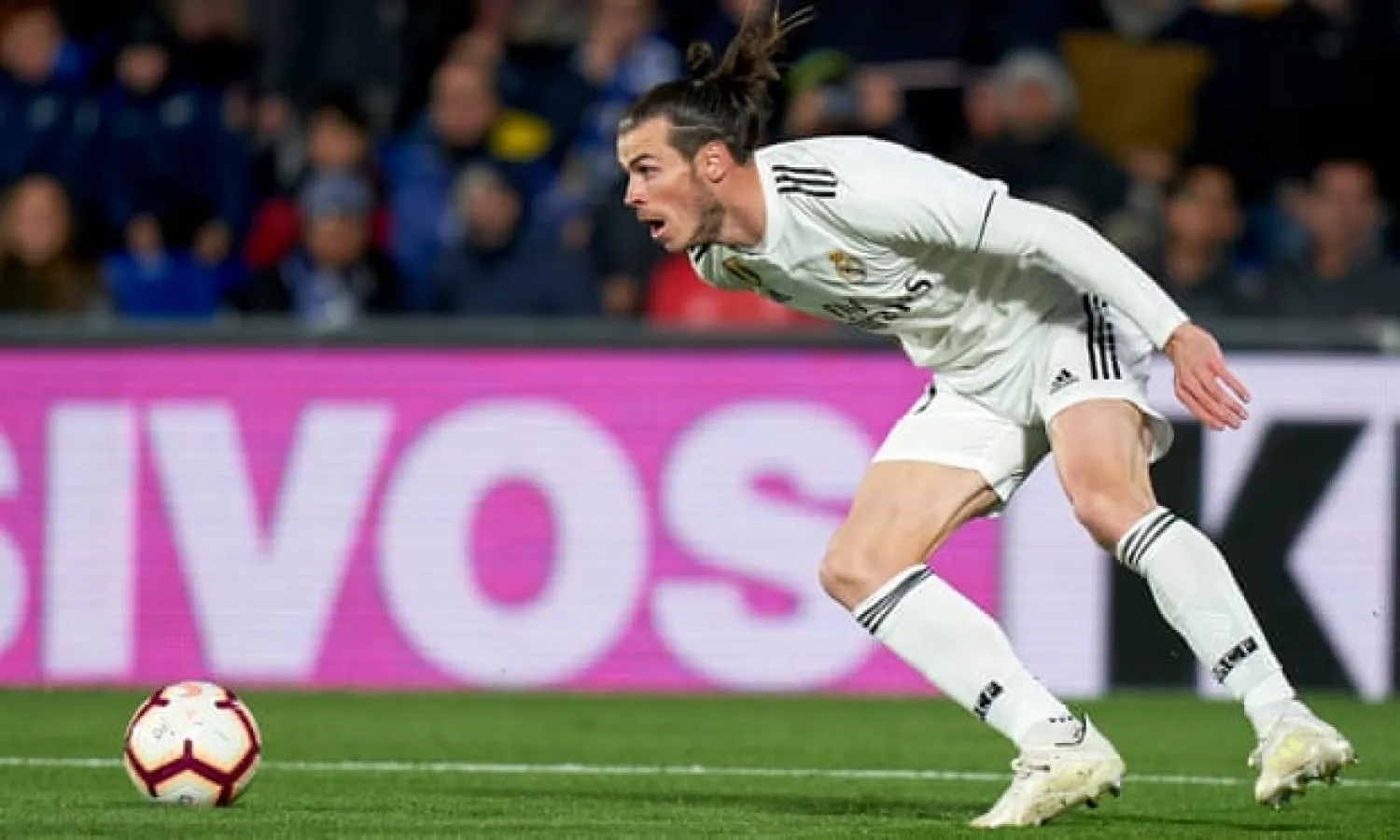On the one hand, the massive imbalances of wealth within football are a terrible thing. On the other, they can lead to deliciously ludicrous morality tales. The hero is lured to a faraway kingdom by promises of unimaginable wealth and other heroes to hero around with. The hero heroes but perhaps not as heroically as some would like. Then the king decides he wants a new hero and that means this hero must leave. But this hero enjoys his luxurious life and does not want to go anywhere where there may be fewer other heroes to hero with and where the pillows may be less silken and the fairways less lush. Impasse ensues.
This could be about Neymar and Paris Saint-Germain but it is about Gareth Bale and Real Madrid – and the fact the pattern repeats with such contrasting personalities suggests the problem is systemic rather than being about individuals. The culture of superclubs has led to a cult of superplayers and the problem with superplayers is that only superclubs and Chinese franchises can afford them. When one tires of the other, there are very few places for the superplayer to go.
Even after the cruciate injury suffered by Marco Asensio this week, Bale probably will end up leaving Real this summer, with it reported on Friday night that he is close to joining Chinese Super League side Jiangsu Suning on a £1m per week contract. Bale is currently sitting on a deal worth £600,000 per week for the next three years. But none of that explains the bitterness that now exists between Bale on one side and Real’s manager, Zinedine Zidane, and fans on the other.
The argument that Bale has not integrated into Spanish life feels a little hollow. There are plenty of players who struggle with a new language who have been successful. And so what if he plays a lot of golf? There are many more damaging extracurricular activities that a footballer could indulge. Complaints about lifestyle tend to be symptomatic of a deeper dissatisfaction.
Yet, on the face of it, Bale’s time at Real has been a success. There have been injuries – 72 games missed through 17 separate problems in his six years at the Bernabéu – but he has still managed 133 league starts. More than that, he has scored vital goals – three in Champions League finals, two of them vital game-changing strikes, and one of them arguably the greatest goal scored in a major final.
Perhaps it is true Bale never quite got going in Spain, that there have been flashes and hints rather than sustained excellence, but equally there is more than enough material there to build a cult hero. There was enough for Real to offer him a six-year deal worth in excess of £150m in October 2016.
The problem has perhaps been twofold: expectation and the absurd incoherence that so often afflicts Florentino Pérez’s content generator. Bale arrived in 2013 for a world-record fee as the designated successor to the previous holder of that accolade, Cristiano Ronaldo. But not only was he never the new Ronaldo, the old Ronaldo turned out to be nowhere near obsolescence as it had appeared.
That created an immediate tactical problem. Bale had excelled in his final season at Tottenham cutting in from the left but that was the space occupied by Ronaldo. Bale ended up playing mainly on the right, an awkward accommodation that immediately raised the question of why a club would pay world-record fees for two players who wanted to play in the same position.
As Ronaldo aged and stripped back his role back, so the opportunities for Bale to play as he had at Spurs became increasingly limited. What he needed was a 4-3-3 with a centre-forward who got out of the way, creating space for him to accelerate into. What he got was a 4-4-2 that generated much of its width from full-back and demanded a more patient technical style from its midfielders.
In six years, Real have spent around £300m on Bale in transfer fee and wages and yet have almost never played him in the role in which he impressed them.
Which is not necessarily to paint Bale as a victim, particularly if there is substance to the rumours Zidane’s increasingly militant stance has been prompted by Bale’s truculence in the latter part of last season. It is not as though Bale seized the opportunity when Ronaldo had finally cleared out of the way. Equally, while he cannot be blamed for insisting his contract be honoured, there is something a little depressing that that seems more of a priority than using his talents at the highest possible level for the handful of seasons that remain for him as a player. It is surely not how the Bale of that famous childhood photo, clad in his Real replica shirt, grinning awkwardly and raising his fingers in a victory sign, hoped it would turn out.
Fundamentally, though, this is a problem of Real’s making: if you treat players like commodities, you cannot be surprised if they come to regard themselves as value-creation machines.
The situation could be sad but really it is just silly: what actually, other than the dignity of the game, the dreams of children and the sense of sport as a noble pursuit in and of itself, has been lost?
The Guardian Sport









